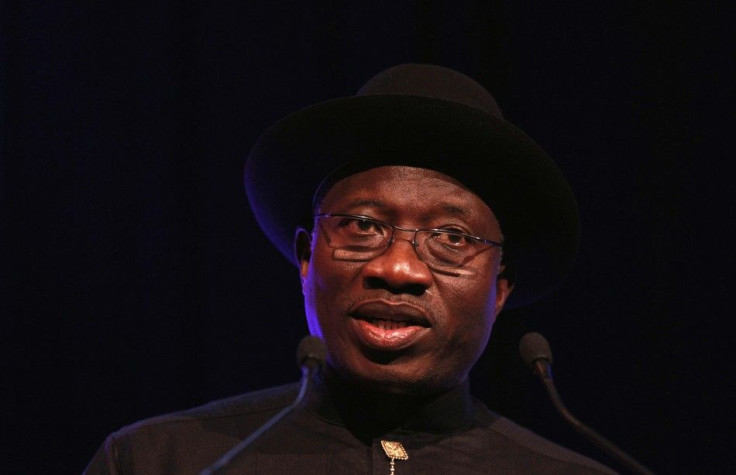Troops, Tanks Patrol Northeast Nigeria After Emergency Declaration

(Reuters) - Heavily armed troops and tanks patrolled the streets of Maiduguri in northeast Nigeria Sunday, witnesses said, after the president declared a state of emergency in parts of the north affected by an Islamist insurgency.
President Goodluck Jonathan imposed the state of emergency on the northeast, the conflict-prone central city of Jos, and part of Niger state near Abuja Saturday, and closed the borders with Cameroon, Chad and Niger in the northeast.
Nearly a week after the radical sect Boko Haram set off a series of bombs across Nigeria on Christmas Day, including one at a church that killed at least 37 people and wounded 57, Jonathan told the nation on state television that his aim was to restore security in troubled parts of the north.
A Reuters reporter in Maiduguri, a remote city in the northeast and the center of the Boko Haram insurgency, saw several tanks patrolling the city and groups of a dozen or more soldiers at a time out on foot patrol.
We woke up this morning only to see armed soldiers all over the place and some tanks patrolling. We fear what may happen next, said Maiduguri resident Buba Guduf.
Jonathan said he had told his chief of defense staff to take other appropriate measures, including setting up a special counter-terrorism force.
The blasts at churches have raised fears that Boko Haram, a movement styled on the Taliban, is trying to ignite sectarian strife in Nigeria, Africa's most populous nation and top oil producer.
Jonathan has been criticized by the opposition and Christian groups for what they said was a slow response to the bombings.
CLASHES FEARED
Residents of Maiduguri, located on the threshold of the Sahara Desert, have borne the brunt of previous clashes between Boko Haram, whose name means Western education is forbidden, and security forces.
Friday three explosions struck Maiduguri shortly after Muslim prayers but caused no casualties, and gunmen shot dead three members of a Muslim cleric's family.
Gun battles between security forces and Boko Haram killed at least 68 people in two days of fighting in the nearby city of Damaturu on Dec. 22 and 23.
The soldiers have intensified their patrol in our area and most people prefer to remain indoors for fear of the unknown, Ibrahim Usman, from the Gwange ward of Maiduguri, told Reuters by telephone.
We are just doing our normal duty, said an officer for the Joint Military Taskforce for Maiduguri, who could not be named because he was not authorized to speak.
The bomb attacks by Boko Haram have strained Nigeria's already fractious north-south divide.
Jonathan, a Christian from the south, upset many northerners by running for and winning the presidency in April, tearing up what many saw as a tacit deal to rotate the top job between a northerner and a southerner every two terms.
More than 500 people were killed in post-election violence in the north after Jonathan's victory, reflecting long-standing northern grievances about perceived alienation and exclusion by the government from the fruits of the oil wealth that is concentrated in the south.
Saturday, Jonathan visited the scene of the deadliest Christmas attack, on St. Theresa's Catholic church in Madalla, on the outskirts of Abuja.
We will crush the terrorists, he told weeping relatives of the victims gathered in the church for a vigil.
In a separate, unrelated incident, clashes between rival ethnic groups in southeastern Ebonyi state Saturday killed at least 50 people, and police said mobile units had been sent there to quell the violence.
Those clashes are likely to add to Jonathan's woes at a time when his forces are already stretched.
(Reporting by a Maiduguri correspondent; Additional reporting by Anamesere Igboeroteonwu in Onitsha; Writing by Tim Cocks; Editing by Tim Pearce)
© Copyright Thomson Reuters 2024. All rights reserved.





















